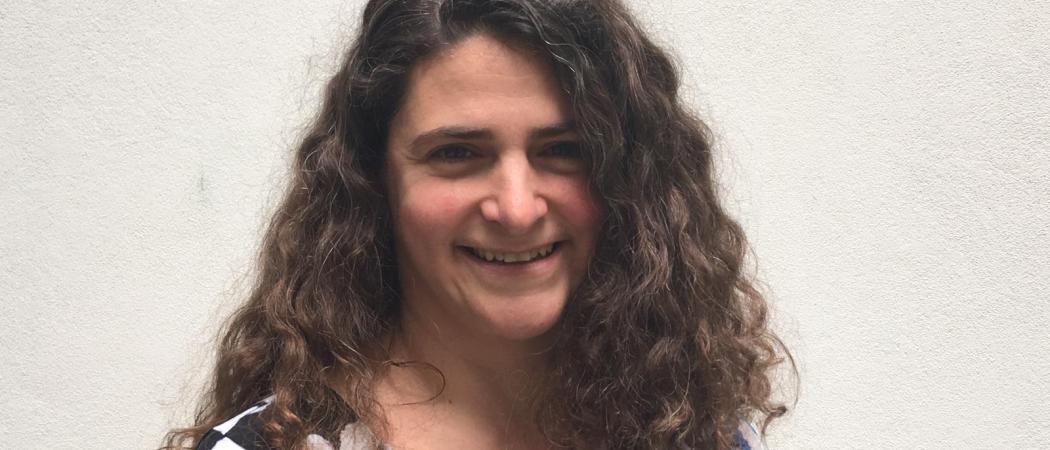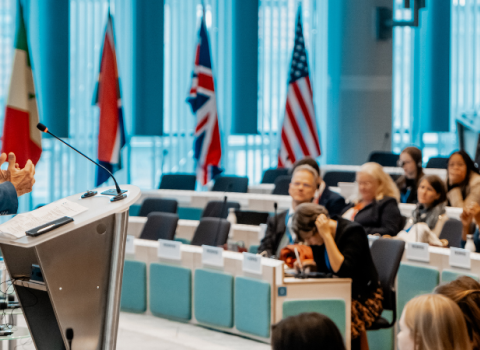Rebecca Lawrence of open science publisher F1000 urges Plan S drafters to ‘stand their ground’, in advance of a revised proposal due this month

European research funders are being urged to stay true to their original objective and make all journal papers published with their support free to read by 2020, when they present revised proposals later this month.
The new draft of Plan S, which is now being coordinated by Robert Kiley of the Wellcome Trust, will be based on a recent public consultation.
Open access advocates want Plan S, which is backed by a growing number of influential national funding agencies and research charities in Europe and further afield, to keep the ambition shown in the original pitch last September.
“I hope they stand their ground,” Rebecca Lawrence, managing director of London-based open-access publisher F1000, told Science|Business.
The original blueprint for Plan S, masterminded by Robert-Jan Smits, the European Commission’s open access envoy and the initial driving force, sets out a number of criteria journals must meet before participating funders permit research they pay for to be published in them.
Some rules concern editorial policy, such as that journals must allow authors to retain copyright. Researchers supported by the Plan S funders must publish their results either in open access journals, or, if they choose another publishing route, make a near-final copy of the manuscript available in an approved open repository.
Publishing charges will be met by funders or universities, rather than authors, with the draft promising a ‘fair’ cap on these charges.
Other requirements cover technical issues. For example, journals must provide full text in machine-readable formats, such as XML, to allow for text and data mining.
Publishers of high-profile subscription journals say they cannot comply with Plan S unless some of the draft rules are changed.
Speaking before he left the role of Plan S champion, Smits said he expected changes to some aspects of the original pitch. “You don’t do a consultation, and then change nothing. The 10 principles of the plan will not be put into question, but there will be tweaks, and some more flexibility notably for repositories,” he said.
While changes are likely, Lawrence argues that platforms like F1000, which offers almost-immediate publication of articles and other research outputs, demonstrates that viable, high-quality alternatives to subscription-based journals already exist. She is among those heralding Plan S as one of the most promising efforts to collapse paywalls in the world.
But there are worries among scientists who fear the scheme will restrict their choice of where to publish.
Several hundred researchers last year signed a letter condemning the initiative, saying it, “Goes too far, is unfair for the scientists involved and is too risky for science in general.” The letter was coordinated by Lynn Kamerlin, biochemist at Uppsala University in Sweden who sits on the advisory board of F1000 Research, the publishing arm of F1000.
Lawrence says that the bigger the Plan S coalition gets, the more chance there is that subscription-based publishers will relent, and change their business models. Plan S, as written, would bar researchers from publishing in many influential (or ‘prestige’) journals.
“A lot of publishers realise the environment is changing,” said Lawrence. “I think the general trajectory is towards open publishing and even if publishers meet 90 per cent of the Plan S principles, that’s a very positive step.”
Lawrence is encouraged by China’s pledge of support for Plan S in December last year, which stunned many, and boosted expectations that other science superpowers will swing behind the plan in time. India’s chief science adviser recently said his country, the third biggest producer of science papers in the world, would sign up.
However, the plan still lacks the support of some of Europe’s science powerhouses, such as Switzerland and Germany.
Growing platform
Lawrence describes the company’s platform, F1000Research, as “a very different way of publishing compared to what everyone else does."
Under F1000Research, papers, and other scientific work including posters, data tables, preliminary results, raw data sets and protocols, are posted in advance of peer review.
Authors choose reviewers for their work, whose names and reviews are published on the site alongside the article, together with the authors' responses and comments from registered users of the platform.
There are practical methods for ensuring authors do not choose referees they feel will go easy on their work, said Lawrence.
“The key for us is the full transparency; and both sides have to declare conflicts. If you give [a paper] too positive a review, it’s obvious, and if it’s too negative, it’s also obvious,” she said.
In 2016, Wellcome Trust, the largest charitable funder of biomedical research in Europe, contracted F1000Research to manage its open access publishing platform, Wellcome Open Research. Since then, many other major funders and institutions, including the Bill & Melinda Gates Foundation, have contracted F1000 to set up similar platforms.
F1000 is now working with many of these organisations through an early stage not-for-profit, Open Research Central, to build consensus around the core principles. These “could underpin scholarly publishing that better meets the needs of open science,” Lawrence said.
Because reviews on the platform take place in the open, “Peer review through us is a very civil process. People tell us how constructive they find it,” said Markie.
Before papers can appear on the platform, an in-house editorial team carries out a basic plagiarism and ethics check. After that, authors can see their work go live very quickly, sometimes as soon as five days after submission.
Authors are encouraged to keep revising and updating what they have published. “If they want to do a new version, they can do. There is no final, final because research is continually evolving. The value with us is that it can evolve very quickly,” said Lawrence.
The platform has published over 3,000 peer-reviewed articles since it was launched in 2013.
“We don’t typically get the ‘Nature papers’ at this point; we wouldn’t expect that,” said Lawrence. “But we’ve had quite a few papers that were destined for big journals.
The platform, which is fully Plan S compliant, is “really strong with the early career researcher,” said Michael Markie, publishing director for F1000 Platforms. “We’re also popular with the folk who have the Nature, Cell, Science titles but who now favour a different way of publishing. The demographic we don’t publish too much of yet are the people who are just starting their labs; the people who are chasing the impact factor, the coin of the realm,” he said.





 A unique international forum for public research organisations and companies to connect their external engagement with strategic interests around their R&D system.
A unique international forum for public research organisations and companies to connect their external engagement with strategic interests around their R&D system.